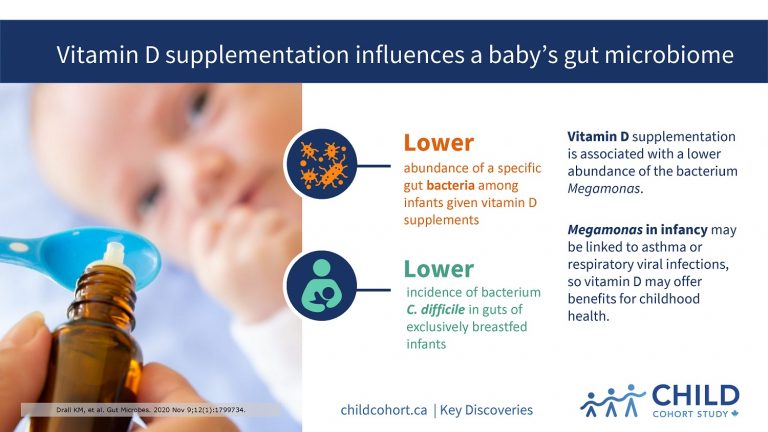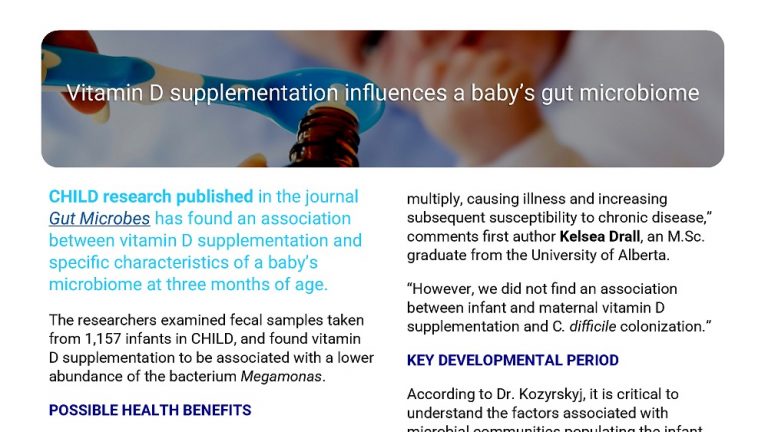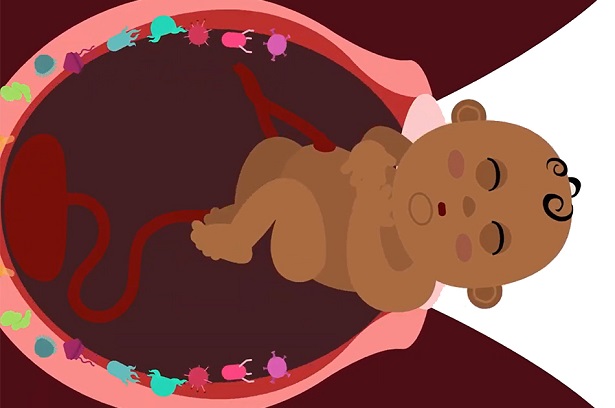Vitamin D supplementation influences a baby’s gut microbiome
CHILD research published in the journal Gut Microbes has found an association between vitamin D supplementation and specific characteristics of a baby’s microbiome at three months of age.
The researchers examined fecal samples taken from 1,157 infants in CHILD, and found vitamin D supplementation to be associated with a lower abundance of the bacterium Megamonas.
POSSIBLE HEALTH BENEFITS
“While little is known about Megamonas in infancy… it may be linked to asthma or respiratory viral infections, so vitamin D may offer benefits for childhood health that should be studied further,” says senior author Dr. Anita Kozyrskyj (University of Alberta).
The researchers also assessed the presence of Clostridioides difficile (C. difficile) in a baby’s gut, finding that nearly 30% of the infants carried C. difficile, with a lower incidence of the bacterium among exclusively breastfed infants.
“Some infants carry the diarrhea-causing bacterium C. difficile in their guts without any symptoms. When gut bacteria levels become imbalanced, this particular bacterium can multiply, causing illness and increasing subsequent susceptibility to chronic disease,” comments first author Kelsea Drall, an M.Sc. graduate from the University of Alberta.
“However, we did not find an association between infant and maternal vitamin D supplementation and C. difficile colonization.”
KEY DEVELOPMENTAL PERIOD
According to Dr. Kozyrskyj, it is critical to understand the factors associated with microbial communities populating the infant gut during the key developmental period of early life.
“Low vitamin D levels have been associated with respiratory syncytial virus and susceptibility to COVID-19,” she points out.
“With CHILD, we have a unique opportunity to follow our study children as they get older to understand how microbial changes observed as a result of dietary interventions may be associated with later health outcomes such as asthma and viral infections.”





